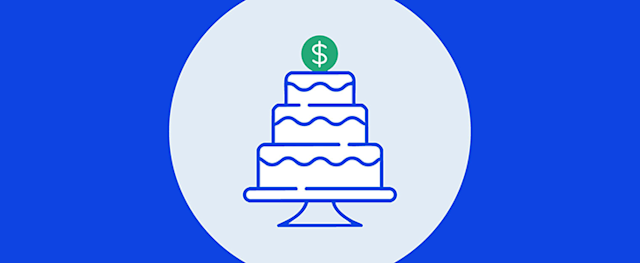How Does Financial Stress Affect Your Health?

Summary
Feeling anxious about money problems? Financial stress can negatively impact your mind, body and budget. We’re here with tips for getting it under control.
In this article:
Financial stress is something many of us have experienced at some point in our lives. That unsettling feeling of worry and fear about money problems can really weigh on us. And for a lot of Americans, financial problems are the biggest source of stress, overshadowing everything else.1
How does financial stress affect physical health?
Financial anxiety can spiral and cause physical and mental health issues, such as high blood pressure, headaches and depression.2 In other words, your mind, body and budget can be negatively impacted by the effects of financial anxiety.
If you're struggling with financial stress, here are strategies to help you navigate tough economic times, reduce anxiety and take charge of your finances.
6 ways to manage financial stress
Acknowledge any financial issues.
Burying your head in the sand won’t make your bills go away. It can only make them worse, and that’ll have a negative effect on your mental and physical health, not to mention your bank account. Start with a good hard look at your money problems — even if it hurts — and start exploring ways to manage your debt and create healthy habits.Identify the causes of your financial stress.
There’s sure to be a root cause of your money issues. Maybe you’re overspending, paying bills late or not budgeting properly. You may still be trying to recover from a financial emergency or job loss. Once you acknowledge the root of your financial stress, you can start finding solutions for getting back on track.Make a plan for tackling your finances.
Now that you know where your financial anxiety is coming from, you can map out a plan to improve your situation. If spending habits are an issue, investigate ways to prevent overspending. Perhaps you need to create a budget (or need help sticking to a budget). Remember that you don’t have to fix everything all at once (that mindset will make your stress even worse). Choose what to tackle first and what you’ll work on later. You may find that just the act of creating a plan puts you in a better frame of mindReach out to experts.
Some banks and credit unions have financial counselors available free of charge for customers. See if your employer offers something similar. If you’re lucky enough to have these resources available, take advantage of them. You may be surprised how quickly a qualified financial expert can get you on track and feeling positive about the future.Take care of yourself.
It’s important to develop healthy coping mechanisms to combat your financial anxiety, and there are many low- and no-cost ways to do so. Exercise and meditation are proven ways to reduce stress. YouTube videos and apps can help you get started with running, de-stressing, practicing yoga and other ways to get moving. Even just a good stretch or a walk outside can give you a boost — and it’s free.3If you have access to a mental health professional, talking about your financial stress may help, too. Even the simplest self-care can make you feel better. Brew an energizing pot of coffee or relax with a comforting cup of tea at the end of the day. Whatever suits your tastes and your mood, find the tools that help you recharge and reset.
Focus on the positives.
Achieving financial stability is a big deal, and every step in the right direction deserves to be recognized. That’s why it’s important to congratulate yourself on any move toward a healthy financial situation. Whether you’ve saved $100 by cooking budget-friendly meals at home or made payments on time this month, you’re going down the right path. Go ahead and be proud of yourself! Keep the momentum going and imagine how good you’ll feel when you stay the course.
Take it one day at a time
It’s easy to get overwhelmed by financial problems. Just know that you can do it — and you don’t have to do it alone. Remember financial stress and mental health often go hand in hand, with one significantly influencing the other. So lean on others to help you get through tough financial times. Take a breather and invite friends and family to virtual or in-person meetups as a way to relax and unwind.
If your financial stress becomes too overwhelming, talk to your doctor or another trusted health professional to discuss your situation.
Remember, each day will bring its own challenges and rewards. But whatever financial stress you’re facing, you’ve got resources and support in your corner to help you through the tough times and guide you toward brighter days ahead.
- htthttps://www.cnbc.com/2023/09/07/majority-of-americans-feeling-financially-stressed-and-living-paycheck-to-paycheck-according-to-cnbc-your-money-survey.html
- https://www.helpguide.org/articles/stress/coping-with-financial-stress.htm
- https://www.bluecrossnc.com/blog/healthy-living/fitness/benefits-of-walking
This article has been updated since 2021. Maureen Rayburn contributed to this article.
This article is for general education and informational purposes, without any express or implied warranty of any kind, including warranties of accuracy, completeness, or fitness for any purpose and is not intended to be and does not constitute financial, legal, tax, or any other advice. Parties (other than sponsored partners of OneMain Financial (OMF)) referenced in the article are not sponsors of, do not endorse, and are not otherwise affiliated with OMF.


